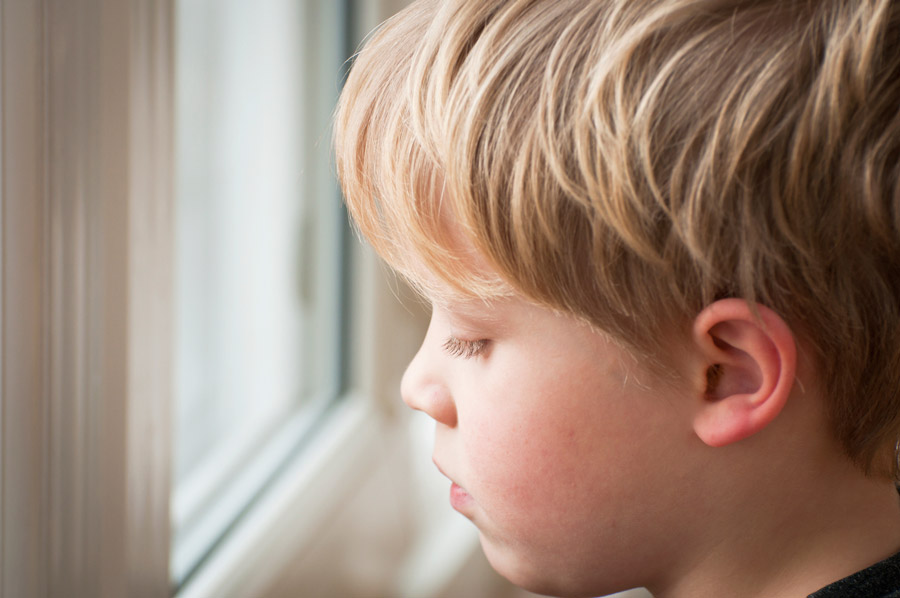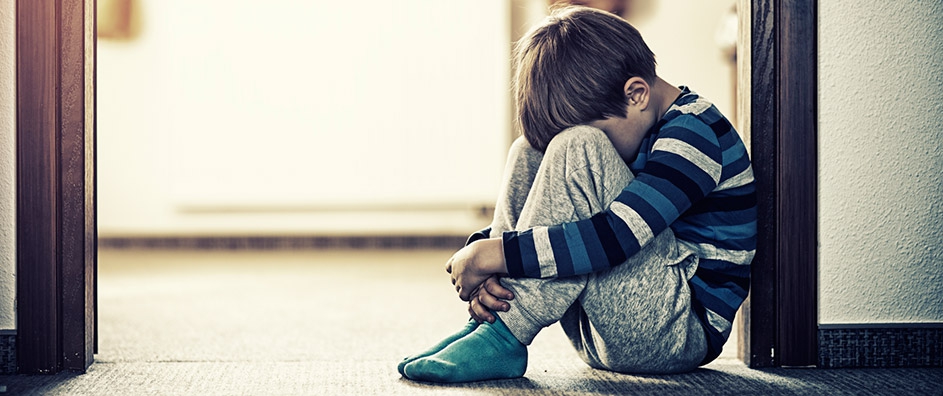The views expressed in our content reflect individual perspectives and do not represent the authoritative views of the Baha'i Faith.
Let’s talk about corporal punishment, and whether or not parents should use it.
Webster’s Dictionary defines it very simply: “bodily punishment, as flogging.”
Wikipedia defines it as:
An act by a parent or other guardian causing deliberate physical pain or discomfort to a minor child in response to some undesired behaviour by the child. Corporal punishment of children typically takes the form of spanking or slapping the child with an open hand or striking with an implement such as a belt, slipper, cane, hairbrush or paddle.
So should parents use corporal punishment on their children?
Let me answer by first saying that I do not condone excessive parental permissiveness, or appreciate disrespectful or ill-behaved children. But I don’t condone corporal punishment, either—and here’s why.
Most parents have their children’s best interests at heart. If you were spanked when you were little, you may have turned out fine. But I would ask you to consider who you might be without this harmful form of punishment.
My aim is not to judge the motives of any loving parent, but to simply point out for your consideration the overwhelming scientific research on the negative effects of corporal punishment on children.
In her article “Spanking the Gray Matter Out of Our Children” researcher Sarah Kovac discusses scientific data which found that children who were regularly spanked had less gray matter in their prefrontal cortexes. The authors of a 2011 study from the Journal of Cognitive Neuroscience state:
The more gray matter you have in the decision-making, thought-processing part of your brain (the prefrontal cortex), the better your ability to evaluate rewards and consequences.
The study shows that the more children are physically punished to control their behavior, the less self-control they acquire by their own volition. They learn to be controlled by physical, outside forces, rather than their own inner moral compass. Also, this form of violence will most likely be passed on to their own children and relationships.

In a 2016 article entitled, “Risks of Harm from Spanking Confirmed by Analysis of Five Decades of Research,” researchers at the University of Texas at Austin and the University of Michigan revealed that spanking can cause permanent social and developmental problems in children. The research suggests that spanking can cause children to defy their parents more frequently, can erode trust and can result in lifelong mental health issues.Researchers have also found that spanking elicited momentary obedience—but not long term results. In fact, they found that corporal punishment often led to more aggressive behavior in children. Other undesirable effects included depression, anxiety, difficulty with their peers and a risk of physical abuse as they became parents. A 2010 study published in the journal Pediatrics found that:
Frequent — more than twice in the previous month — spanking when a child was 3 was linked to an increased risk for higher levels of child aggression when the child was 5.
Another study, published in the April 2016 edition of the Journal of Family Psychology, looked at over 160,000 children over a 50-year period. The study defined spanking as: “An open-handed hit on the behind or extremities.” According to the study results, as the frequency of spanking increases, the likelihood of anti-social behavior, cognitive and mental health issues as well as aggression also increases. One author of the study, Elizabeth Gershoff, an associate professor of human development and family sciences at The University of Texas said:
Our analysis focuses on what most Americans would recognize as spanking and not on potentially abusive behaviors. We found that spanking was associated with unintended detrimental outcomes, and was not associated with more immediate or long-term compliance, which are parents’ intended outcomes when they discipline their children.
Children—our greatest and most precious gift—need to grow up with feelings of loving self-worth. I remember being slapped and hit as a child. I could never understand how someone who loved me and who I loved could physically hurt me. Even then, I realized that I would have better learned whatever lesson my mother was trying to teach with another form of discipline. Taking away my dessert or a time-out actually made much more of an impression.
But other, far more effective and long-lasting methods of punishment do require more of a parent’s self-control, time and thought. As I got a bit older the lessons that stuck with me were things like having to miss a concert or a special date with my friends. Being slapped just made me feel terrible, deeply scarring emotions of hatred, anger and shame. I didn’t realize the effects until my adult life, when I had to learn the hard lessons of forgiveness and being kind to myself. I do recognize that some children come out of their corporally-punished childhood relatively unscathed—but as a parent, why take the risk, especially when there are other, better forms of discipline available?
Known as the leading researcher on spanking in the United States today, associate professor Gershoff goes on to say:
There’s no study that I’ve ever done that’s found a positive consequence of spanking. Most of us will stop what we’re doing if somebody hits us, but that doesn’t mean we’ve learned why somebody hit us, or what we should be doing instead, which is the real motive behind discipline.
Finally, the Baha’i teachings say that corporal punishment is not permissible. Instead, they recommend punishments based on reason rather than violence and the infliction of physical pain:
Let the mothers consider that whatever concerneth the education of children is of the first importance. Let them put forth every effort in this regard, for when the bough is green and tender it will grow in whatever way ye train it. Therefore is it incumbent upon the mothers to rear their little ones even as a gardener tendeth his young plants. Let them strive by day and by night to establish within their children faith and certitude, the fear of God, the love of the Beloved of the worlds, and all good qualities and traits. Whensoever a mother seeth that her child hath done well, let her praise and applaud him and cheer his heart; and if the slightest undesirable trait should manifest itself, let her counsel the child and punish him, and use means based on reason, even a slight verbal chastisement should this be necessary. It is not, however, permissible to strike a child, or vilify him, for the child’s character will be totally perverted if he be subjected to blows or verbal abuse. – Abdu’l-Baha, Selections from the Writings of Abdu’l-Baha, p. 125.
You May Also Like
Comments

















Two children ran out in the street after a ball, one mother gave her child a light spank on the but, the other mother scolded the first mother for doing that and said it was not called for.
A short time later the ball went on the street, the two children went after it, the one that had been spanked stopped at the street, the other keep going and was hit by a car.
I am not for spanking, ...but when I child keeps doing something that is life threating, some times punishment is better than having the child doing something dangerous.
Reward and punishment guide people to do what is wright, but too much of one or the other is not good.
Hilton & Azamat